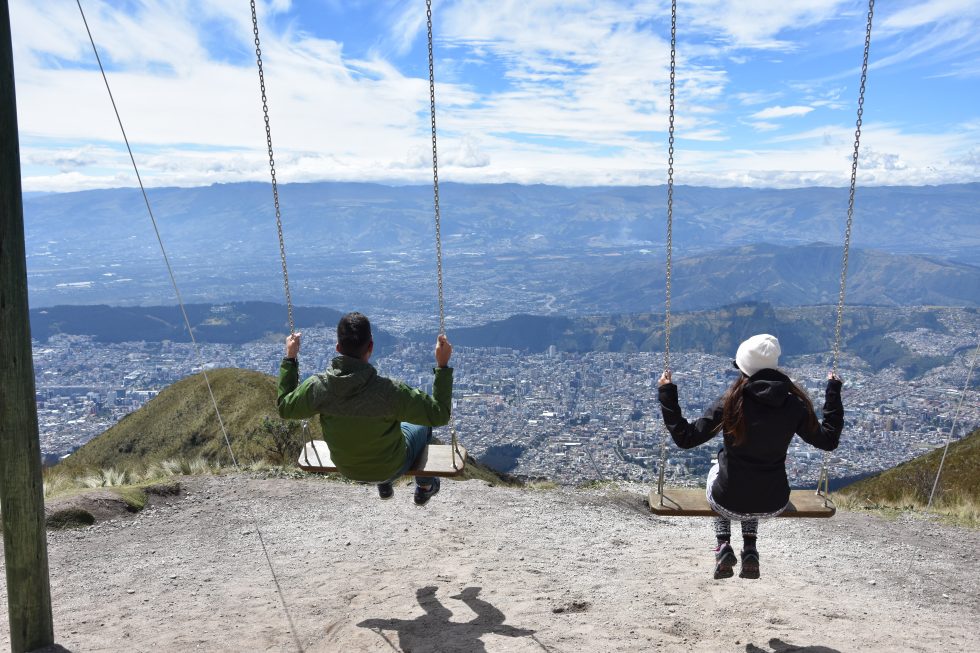There’s something very common about all of us as we grow older…
We’ve forgotten how to play!
By “play”, I don’t mean just the act of stacking some blocks together or taking a racket for a swing. I mean those times when we let go and are truly engaged in what we’re doing.
Can you recall when you last played without an agenda or ulterior motive. Maybe playing tennis for the sheer pleasure of swishing the racket and hitting the ball, and not to become the next Serena Williams or to become physically fit.
Play for play’s sake, and nothing more.
For most of us, it’s been years since we last engaged in authentic play; which is not only unfortunate but unhealthy.
We are all aware that play is vital.
When we were kids, play was a natural part of our day.
“Go out and play!”, our parents would tell us. Play was simply considered as important to one’s growth back then as air and water.
It’s unhealthy when a child isn’t able to play even for a day. Science has shown that play has numerous benefits —from cognitive growth to physical health and not letting kids play would deprive them from such benefits. It would be detrimental to their mental health!
But most of us stopped allowing ourselves to play as we got older. We know how important play is to children, but it’s equally important to adults, too!
In fact, I have a strong feeling most of our adult worries are caused by the lack of play.
But why did we stop playing?
As adults, we feel guilty for playing.
Modern times have made us focus (make that obsess) on goals. It’s not enough that we have to have something, we have to BE something. And there’s just too many boxes to tick! We have to have a home with a nice garden, three kids, and two pets. We have to be a mother, entrepreneur, artist, and advocate for something.
Time is our most precious commodity and if we’re highly ambitious, we might even begin to consider play for play’s sake a waste of time. We have goals to accomplish, bills to pay, and stacks of laundry to be folded. Why spend five hours of your time playing petanque at the park?
It doesn’t help that plenty of people would tell us that playing is “for children” and that we should “grow up” if they ever see us playing. Plenty of people even take pride in the fact that they think of play as childish and go out of their way to make sure other people can’t enjoy themselves.
And because we have become conditioned to think that it’s wasteful to “indulge” in play, we easily go for months without taking a moment to ourselves to rest and relax. It would just distract us and take our attention away from work, money, and progress.
It’s almost as if we consider play as a surefire recipe for a purposeless life!
But if we don’t play, we would gather dust, we would rot, and we would not be able to live a fully-engaged life.
If you haven’t played for a while, if you think play is unnecessary and indulgent, maybe it’s time to assess what you think is the purpose of life.
We don’t stop playing because we grow old; we grow old because we stop playing.
– George Bernard Shaw
We need to play for many obvious reasons but its role for us adults is to transform our busy, beaten-down selves into a self that’s more engaged in life—something more childlike and closer to the divine.
When we’re engaged in authentic play, nothing else matters except what we have in front of us—molding a clay that would look exactly like our cat or trying to stay put in the closet while our son tries to find us.
When we engage in play, we’re out of our heads and we’re just “lost” in the joyful moment. We even forget who we are for a little while, which is necessary for our sanity and growth.
And even as society frowns on the idea of adults playing, adult life does not necessarily have to mean living a life that’s all work and no play.
Remember the movie The Shining?
All work and no play makes Jack a dull boy.
Well, we surely don’t want that!
What’s a life without play?
Life without play is a dry and mechanical existence where we live simply for the sake of survival.
It becomes a dull and joyless rat race, and resentment and tension will just keep on building without a good way for us to vent.
Some will take to cigarettes and alcohol just to cope with the dull reality of daily life—and if you think about it, smoking and drinking fulfil basically the same role as play, except that they’re perceived as more “adult”.
They’re significantly more harmful to our bodies than play will ever be!
Let’s remember how to play again
Let’s take a trip down memory lane. What were you like when you’re five?
For the purpose of this exercise, how did you approach play at that age? You didn’t even “approach” play, you just did it without thinking, didn’t you?
We didn’t think about how playing can be beneficial to our creativity and to our health.
We didn’t think about how it can improve interpersonal relationships.
We didn’t think about getting a Guinness Award for being the best in hopscotch.
If you’re like me, you’d just rush to the playground and just enjoy the moment without any goal, plan, or expectation.
The way to engage in authentic play is to be our 5-year-old self again—purposeless, not overthinking…just enjoying the moment while it is happening.
1. Forget purpose and agenda
Play is pure, unadulterated joy in action.
Hula hoop stops being “play” when you do it mainly to get a slimmer waist.
Playing wooden blocks with your toddler stops being “play” when you do it mainly to teach your child and help them develop their motor skills.
Painting or any kind of art stops being “play” when you are doing it mainly for fame or money.
The moment you have a goal, it’s no longer play. Don’t aim to be the best at play, to earn from play, to be more interesting because you play, to become famous because you play.
Stop upgrading play because the moment you do, it’s not play anymore!
In a world where all we should care about is productivity and success, authentic play is a form of rebellion.
This stems from the idea that play for the sake of play is a waste of time, and that every waking moment should be dedicated to something that pushes us forward.
Whatever it is you’re finding enjoyment in, try to keep it pure and enjoy it for what it is. Avoid the urge to profit from the things you do for fun, or to turn play into opportunities to further your career.
2. Forget yourself
We don’t want to admit it but we can be a little vain. Climbing a mountain isn’t just a great opportunity for us to see rocks and to admire the greenness of a leaf like a 5-year-old would. It’s become something that we want to “conquer” and brag about.
We try surfing for an hour so we can feel good about the fact that we tried surfing. Of course we will tell others about it after because that could mean we’re adventurous, sporty, easygoing, fun.
Sometimes, we even have a pillow fight with our kids just so they would see us as a fun parent.
But play shouldn’t be like that. In order for us to play authentically, we have to separate our ego from whatever it is we’re doing. We have to step out from ourselves and truly engage.
3. Let go of control
Some people treat play almost the same way they treat work. And this taints the purity of play itself.
When you were a kid, you didn’t make plans to play dolls with Lucy for thirty minutes on the swing, and then play tag with John for an hour. No—you just met up with your friends and played whatever you felt like doing.
Just sit back and relax. Don’t feel like you have to plan.
You do it to have fun and in order for you to enjoy it, you have to let go.
_____________________________
As a society, we have completely forgotten how to play. Fun for fun’s sake is shunned and seen as “childish”, and when people think someone is wasting their time, they’re told that they’re just “playing around.”
But that should not be. We all need something to help us cope with day to day life, and getting involved in genuine, childlike play is one of the best things we can do for ourselves.



